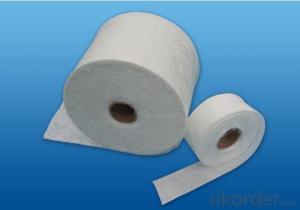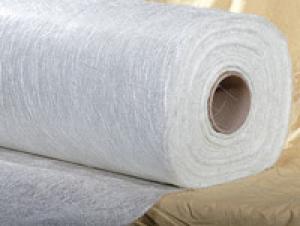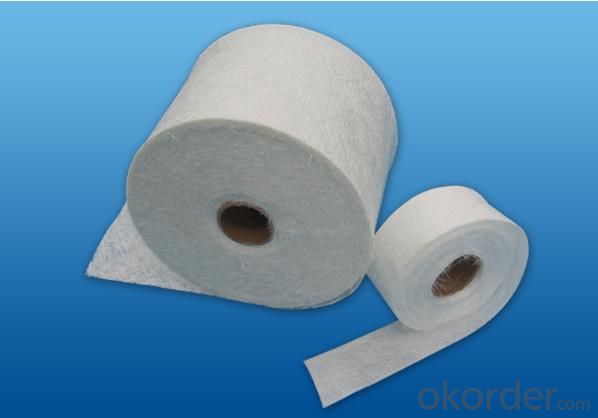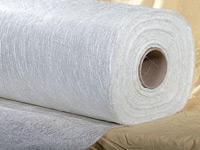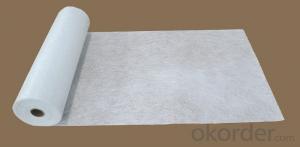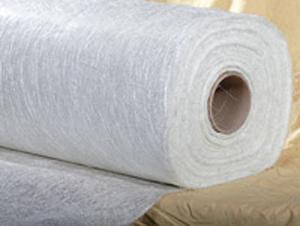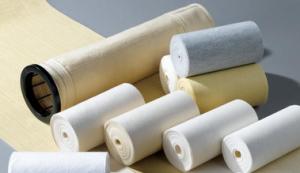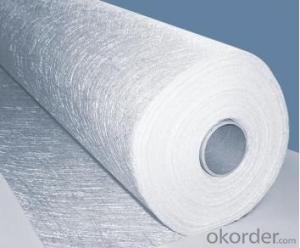Fiberglass Mat Tissue Stitched Mat 450g 150~2600mm
OKorder Service Pledge
OKorder Financial Service
You Might Also Like
Introduction of E-glass Chopped Strand Mat
Chopped strand mat is made from fiberglass chopped strands boned with powder binder or emulsion binder.
E glass chopped strand mat is made from fiberglass strands chopped to length and bonded together
with powder binder. Chopped strand mat is used primarily for hand lay-up processes, filament winding and press molding of FRP products. Typical products include bathroom
Typical products include bathroom
accessories, pipe, building materials, automobiles, furniture and other FRP products.
Features of E-glass Chopped Strand Mat
1.Warp and weft rovings aligned in a parallel,flat manner and uniform tension .
2.Densely alighed fibers,providing high dimensional stability ans easy handing .
3.Good moldability,fast and complete resin wet-out ,enabling high productively .
4.Good transporsision and hign strength of the composite products.
5.Even thickness ,no fuzz ,no stain.
6.Fast wet-out ,products with high strength ,little loss for strength in damp situation.
7.fiberglass woven roving has the features of : high tensile strength, corrosion resistance, flame retardance,insulativity.main function
8.applied to hand lay-up process
9.to reinforce UP resin
10.even thickness and flawless
11.good performance of processability in moulded parts
12.properties guaranteed under moisture condition
13.excellent mechanical strength during production of finished products
Features of E-glass Chopped Strand Mat
1.the composit products have high dry and wet tensile strenth and good transparency.
2.Low fuzz ,dirt ,impurity and other stain
Images of E-glass Chopped Strand Mat
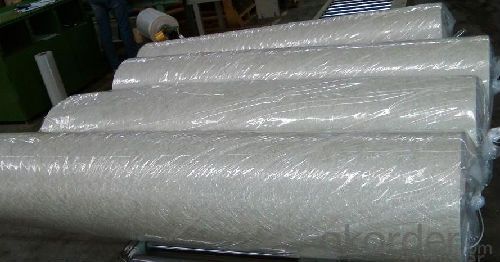
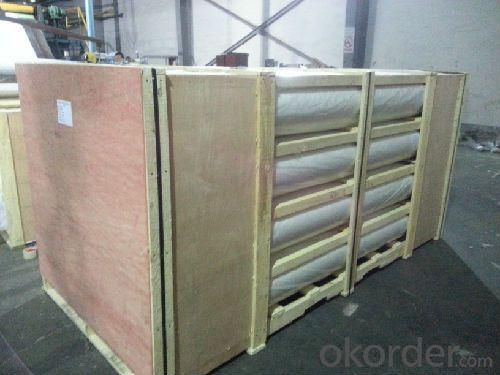
E-Glass Chopped Strand Mat Specification:
Property | Glass type | Weight(g/m2) | Width 200~3300 | Roll Weight | Moisture Content /% | Combustible Content /% | Breakage Strength /N |
Test Method | GB/T 1549 | ISO3374:2000 | ISO3374 | GB/T17470-1998 | ISO3344:1997 | ISO1887:1995 | ISO3342 |
EMC 80 | E-GLASS | 80±16 | ±5 | 6~50 | <0.2 | 13.6±0.35 | ≥200 |
EMC 100 | E-GLASS | 100±10 | ±5 | 6~65 | <0.2 | 9.5±0.35 | ≥170 |
EMC 150 | E-GLASS | 150±15 | ±5 | 6~97 | <0.2 | 8.0±0.35 | ≥40 |
EMC 225 | E-GLASS | 225±22 | ±5 | 6~150 | <0.2 | 5.0±0.6 | ≥60 |
EMC 300 | E-GLASS | 300±30 | ±5 | 6~180 | <0.2 | 4.0±0.6 | ≥90 |
EMC 450 | E-GLASS | 450±45 | ±5 | 6~180 | <0.2 | 3.8±0.6 | ≥120 |
EMC 600 | E-GLASS | 600±60 | ±5 | 6~240 | <0.2 | 3.6±0.6 | ≥150 |
EMC 900 | E-GLASS | 900±90 | ±5 | 6~190 | <0.2 | 3.4±0.6 | ≥180 |
FAQ of Chopped strand mat
1. Why Choose us?
CNBM is a stated own company, provide the guarantee for the best quality, best service and safety business.
2. How will we guarantee the quality?
a, ISO 9001-2008 quality control system;
b, Strict and regular quality control in production;
c, Inspeciation when loading into container before shippment;
d, Sample stock for one year for quality tracing and record.
3. What is your MOQ?
Our MOQ is one pallet.
4. Can you provide sample?
Yes, samples are in stock. we can offer free sample for you.
5. Payment terms?
We can accept L/C, T/T etc.
6. Do you offer OEM service?
Yes, we can print customers’ logo on the packaging;
And the size and specification can be produced and design according to your demand.
7. What is the Production Lead Time?
1 *40HQ each day.
- Q: Is fiberglass mat tissue fire-resistant?
- No, fiberglass mat tissue is not inherently fire-resistant. While fiberglass itself is a non-combustible material, fiberglass mat tissue is typically combined with a binder or resin that may be flammable. However, specialty fiberglass mat tissue products are available that have been treated with fire-resistant coatings or additives to enhance their fire resistance properties. These treated materials can provide improved fire resistance and are commonly used in applications where fire safety is a concern, such as in certain construction or insulation materials. It is important to review the specific product specifications or consult with the manufacturer to determine the fire resistance capabilities of a particular fiberglass mat tissue.
- Q: Can fiberglass mat tissue be used for composite pipe manufacturing?
- Yes, fiberglass mat tissue can be used for composite pipe manufacturing. Fiberglass mat tissue is a type of reinforcement material that is commonly used in the production of composite pipes. It provides strength and durability to the pipes, making them suitable for various applications. The fiberglass mat tissue is typically impregnated with a resin, such as polyester or epoxy, which helps to bind the fibers together and create a solid structure. This reinforcement material is known for its lightweight properties and excellent corrosion resistance, making it an ideal choice for composite pipe manufacturing. Additionally, fiberglass mat tissue can be easily molded into different shapes and sizes, allowing for the production of pipes with varying diameters and lengths. Overall, the use of fiberglass mat tissue in composite pipe manufacturing offers numerous advantages, including enhanced strength, durability, and resistance to harsh environmental conditions.
- Q: How does the density of fiberglass mat tissue impact its performance?
- The performance of fiberglass mat tissue is significantly impacted by its density. This nonwoven material is made up of glass fibers that are randomly dispersed and held together by a binder. Density refers to the number of fibers present in a given volume of the material. Increased density of fiberglass mat tissue generally leads to enhanced mechanical properties and performance. The higher density means there are more glass fibers in each unit volume, resulting in improved strength, stiffness, and durability. This makes the material more resistant to tearing, puncturing, and abrasion, which is especially important in applications where the tissue is exposed to harsh conditions or heavy loads. Furthermore, higher-density fiberglass mat tissue offers superior thermal insulation properties. The increased fiber content allows for better heat resistance, making it suitable for applications that require thermal protection, such as insulation boards or fireproofing materials. Conversely, lower density of fiberglass mat tissue can offer advantages in certain applications. Lower-density tissues are generally more flexible and have better conformability, allowing them to easily adapt to irregular surfaces or complex shapes. This makes them suitable for applications where flexibility or conformability is a primary requirement, such as in the automotive or aerospace industries. In conclusion, the density of fiberglass mat tissue is critically important in determining its performance characteristics. Whether a higher or lower density is preferred depends on the specific requirements of the application, taking into account factors such as strength, stiffness, durability, thermal insulation, flexibility, and conformability.
- Q: What are the different types of fiberglass mat tissue available?
- There are various types of fiberglass mat tissue available, including chopped strand mat (CSM), continuous filament mat (CFM), and surface veil mat. Each type has different characteristics and is used for specific applications in industries such as construction, automotive, and marine. CSM is commonly used for general purpose applications, CFM provides higher strength and stiffness, and surface veil mat is used for surface finishing and improving the aesthetics of fiberglass products.
- Q: How does fiberglass mat tissue perform in terms of mold and mildew resistance?
- Fiberglass mat tissue possesses exceptional mold and mildew resistance. Its inherent moisture resistance prevents the proliferation of mold and mildew. Moreover, fiberglass is impermeable and unsuitable for the flourishing of these microorganisms. Furthermore, fiberglass mat tissue finds extensive usage in areas with high humidity, like bathroom walls or showers, and has proven highly efficient in deterring mold and mildew growth. All in all, fiberglass mat tissue exhibits outstanding performance in terms of mold and mildew resistance, rendering it a dependable option for situations where these issues are prominent.
- Q: Is fiberglass mat tissue resistant to mold and mildew?
- Yes, fiberglass mat tissue is resistant to mold and mildew due to its non-porous and moisture-resistant properties.
- Q: Can fiberglass mat tissue be used for acoustic panels?
- Yes, fiberglass mat tissue can be used for acoustic panels. It is commonly used as a core material in acoustic panels due to its excellent sound absorption properties. The fibers in the tissue help to dissipate sound energy and reduce echo and reverberation in a room.
- Q: Can fiberglass mat tissue be used for electrical enclosures?
- No, fiberglass mat tissue is not suitable for electrical enclosures as it does not provide sufficient insulation properties necessary for electrical safety.
- Q: What is the shelf life of fiberglass mat tissue?
- The shelf life of fiberglass mat tissue can vary depending on several factors such as storage conditions, packaging, and the specific manufacturer's recommendations. Generally, fiberglass mat tissue can have a shelf life of around one to two years if stored in a cool, dry place and unopened. However, it is important to note that over time, the material may degrade or lose its physical properties, which can affect its performance and suitability for use. Therefore, it is advisable to always check the manufacturer's guidelines or consult with them directly for the most accurate information regarding the shelf life of a particular fiberglass mat tissue product.
- Q: Can fiberglass mat tissue be used for insulating crawl spaces?
- Yes, fiberglass mat tissue can be used for insulating crawl spaces. Fiberglass mat tissue is a versatile and commonly used material for insulation purposes. It is lightweight, flexible, and easy to install, making it suitable for crawl spaces which often have limited access and tight corners. Fiberglass mat tissue is also resistant to moisture, mold, and pests, making it an ideal choice for crawl spaces which are prone to these issues. Additionally, it provides excellent thermal insulation properties, helping to maintain a consistent temperature and energy efficiency within the crawl space. Overall, fiberglass mat tissue is a reliable and effective option for insulating crawl spaces.
Send your message to us
Fiberglass Mat Tissue Stitched Mat 450g 150~2600mm
OKorder Service Pledge
OKorder Financial Service
Similar products
Hot products
Hot Searches
Related keywords
